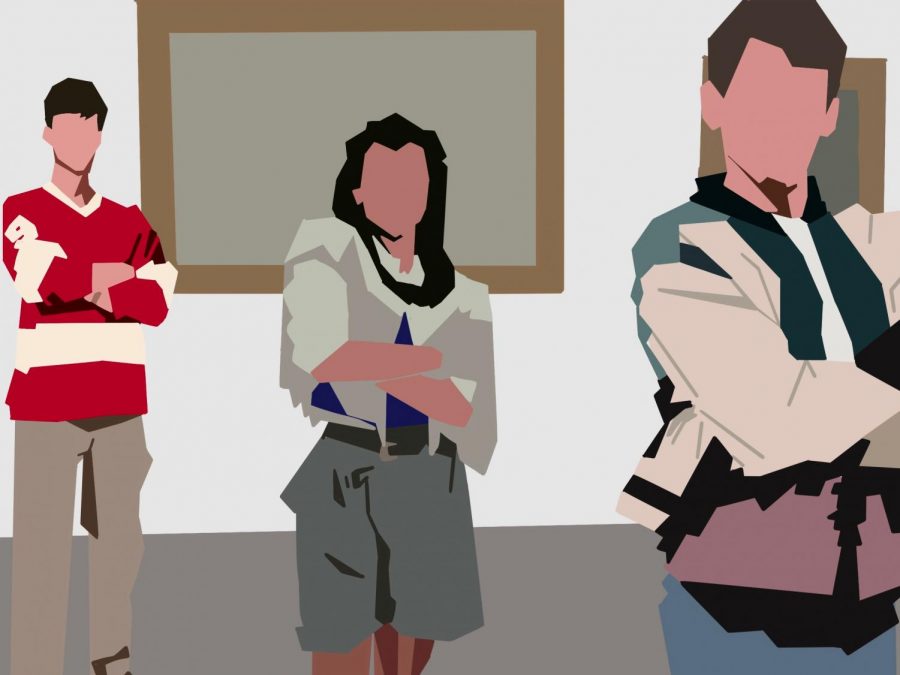Ferris Bueller: The Manifestation of the Fear to Grow Up
May 27, 2020
Almost everyone knows about the 1980’s film Ferris Bueller’s Day Off. The classic comedy clashes the mundane with the bizarre in an attempt to picture what every adult wishes they could have done during their high school years. The main character, Ferris Bueller, is a charismatic symbol who encourages his friends—and viewers—to make sick days count. I remember watching this as a child and not giving it much thought; as a comedy, it was undoubtedly funny. However, when I recently rewatched the critically acclaimed teen film, it became horrifyingly clear to me that Ferris Bueller’s Day Off is not a happy film, but a sad one. Themes of fleeting childhood and good times passing are brutally pressed against the teenagers as they each fight against the inevitable reality of adulthood in their own ways.
The plot of Ferris Bueller’s Day Off is easy to follow—Ferris, the goofy, carefree high school student, fools his parents in a disappointingly easy stunt, allowing him his final sick day of the year. As soon as his gullible caretakers leave the house, Ferris shoots out of bed to seize the day, pulling his begrudging friend Cameron Frye and conversely eager girlfriend, Sloane Peterson, along a journey of spectacular shenanigans and close calls with the principal of their school, Ed Rooney. With the group led only by Ferris’ fearless, larger-than-life attitude, it becomes clear that the only real characters are the ones trying to stop him. Both his sister, Jeanie, and nemesis, Ed Rooney, are obsessed with the transcendent teenager who seems to get away with everything. Their attempts to catch him are futile, because Ferris carries an existentialist aura of sorts. Throughout the movie, he represents a concept of youthful defiance of time itself, which is exactly the only thing that can, and will, catch up to Ferris. Tragically, everyone but the upbeat protagonist seems to realize this, and either clings to him desperately or despises what he represents.
From the perspective of Cameron and Sloane, Ferris is an unbeatable force that protects them from what most teenagers are scared of: growing up. Each of them struggles with their own feelings about growing up, yet Ferris seems to dismiss this problem without consequence. Cameron and Sloane are both disturbed by and addicted to his ability to ignore destiny, and are unable to leave the momentary safety of their youth.
“I don’t know what I’m gonna do,” the sullen Cameron says to Sloane as they watch Ferris lead a parade float down Dearborn Street.
“College.”
“Yeah, but to do what?”
“What are you interested in?”
“Nothing.”
“Me neither!” The oddly quick interaction is snuck in against the din of the crowd rooting for Ferris, deeply contrasting the scene around them. The pair cannot avoid growing up, but the difference between Sloane and Cameron is that Cameron realizes that he can’t cling to Ferris forever and lead a fairytale life. Sloane goes so far as to say she will marry him, neglecting her fears and plunging deeper into her faith for Ferris. Cameron is a victim in the fact that he is a very real teenager, crippled by anxiety and alienated by his parents. For him, as for the rest of us, the cost of pleasure is often met with consequence; it’s impossible for him not to look at the future, and his worry for the fate of both himself and his unknowing friends is what cripples him the most.
Despite the tragic themes in Ferris Bueller’s Day Off, it doesn’t fail to entertain. The movie has become one of my favorites from the 80’s, as it has allowed me to appreciate the value in both the Cameron and Ferris in all of us. I’m sure that as time goes on for students at CRLS, many of us will face similar challenges. This stage in life is precious, and the characters of Ferris Bueller’s Day Off remind us constantly that it is inevitably bittersweet. We should learn to embrace it instead of run from it, because as the idyllic teen reminds us, “Life moves pretty fast. If you don’t stop and look around once in a while, you could miss it.”











